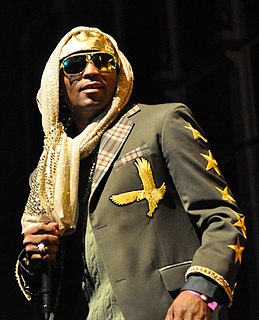A Quote by James Fenton
A glance at the history of European poetry is enough to inform us that rhyme itself is not indispensable. Latin poetry in the classical age had no use for it, and the kind of Latin poetry that does rhyme - as for instance the medieval 'Carmina Burana' - tends to be somewhat crude stuff in comparison with the classical verse that doesn't.
Related Quotes
A glance at the history of European poetry is enough to inform us that rhyme itself is not indispensable. Latin poetry in the classical age had no use for it, and the kind of Latin poetry that does rhyme - as for instance the medieval Carmina Burana - tends to be somewhat crude stuff in comparison with the classical verse that doesn't.
What the world wants, what the world is waiting for, is not Modern Poetry or Classical Poetry or Neo-Classical Poetry - but Good Poetry. And the dreadful disreputable doubt, which stirs in my own skeptical mind, is doubt about whether it would really matter much what style a poet chose to write in, in any period, as long as he wrote Good poetry.
Verse in itself does not constitute poetry. Verse is only an elegant vestment for a beautiful form. Poetry can express itself in prose, but it does so more perfectly under the grace and majesty of verse. It is poetry of soul that inspires noble sentiments and noble actions as well as noble writings.
I didn't ever consider poetry the province exclusively of English and American literature and I discovered a great amount in reading Polish poetry and other Eastern European poetry and reading Russian poetry and reading Latin American and Spanish poetry and I've always found models in those other poetries of poets who could help me on my path.
One of the interesting things about the history of poetry in the 16th, 17th, and 18th centuries is that people who read liked getting their information in rhyme just as much as in prose. The genre that we would think of as nonfiction often was written in verse in forms like the Georgic when people thought that one of the tasks of poetry was conveying arguments and information in a pleasant way.
That is why I think, in defiance of Plato, that there is at once error and vulgarity in saying that poetry is a lie, except in the sense that Cocteau wrote one day: I am a lie who always tells the truth. The only poetry which lies purely and simply is academic, pseudo-classical, conceptually repetitive poetry, and it is not poetry.
Among those today who believe that modern poetry must do without rhyme or metre, there is an assumption that the alternative to free verse is a crash course in villanelles, sestinas and other such fixed forms. But most... are rare in English poetry. Few poets have written a villanelle worth reading, or indeed regret not having done so.
Poetry is concerned with using with abusing, with losing
with wanting, with denying with avoiding with adoring
with replacing the noun. It is doing that always
doing that, doing that and doing nothing but that.
Poetry is doing nothing but using losing refusing and
pleasing and betraying and caressing nouns. That is
what poetry does, that is what poetry has to do no
matter what kind of poetry it is. And there are a
great many kinds of poetry.
Poetry is the most informative of all of the arts because everything comes down to poetry. No matter what it is we are describing, ultimately we use either a metaphor; or we say "that's poetry in motion." You drink a glass of wine and say, "that's poetry in a bottle." Everything is poetry, so I think we come down to emotional information. And that's what poetry conveys.





































